By Victoria Aiyegbusi, Freelance Health Writer and Dateline Health Africa (DLHA) Volunteer. Medically reviewed by the DLHA Team
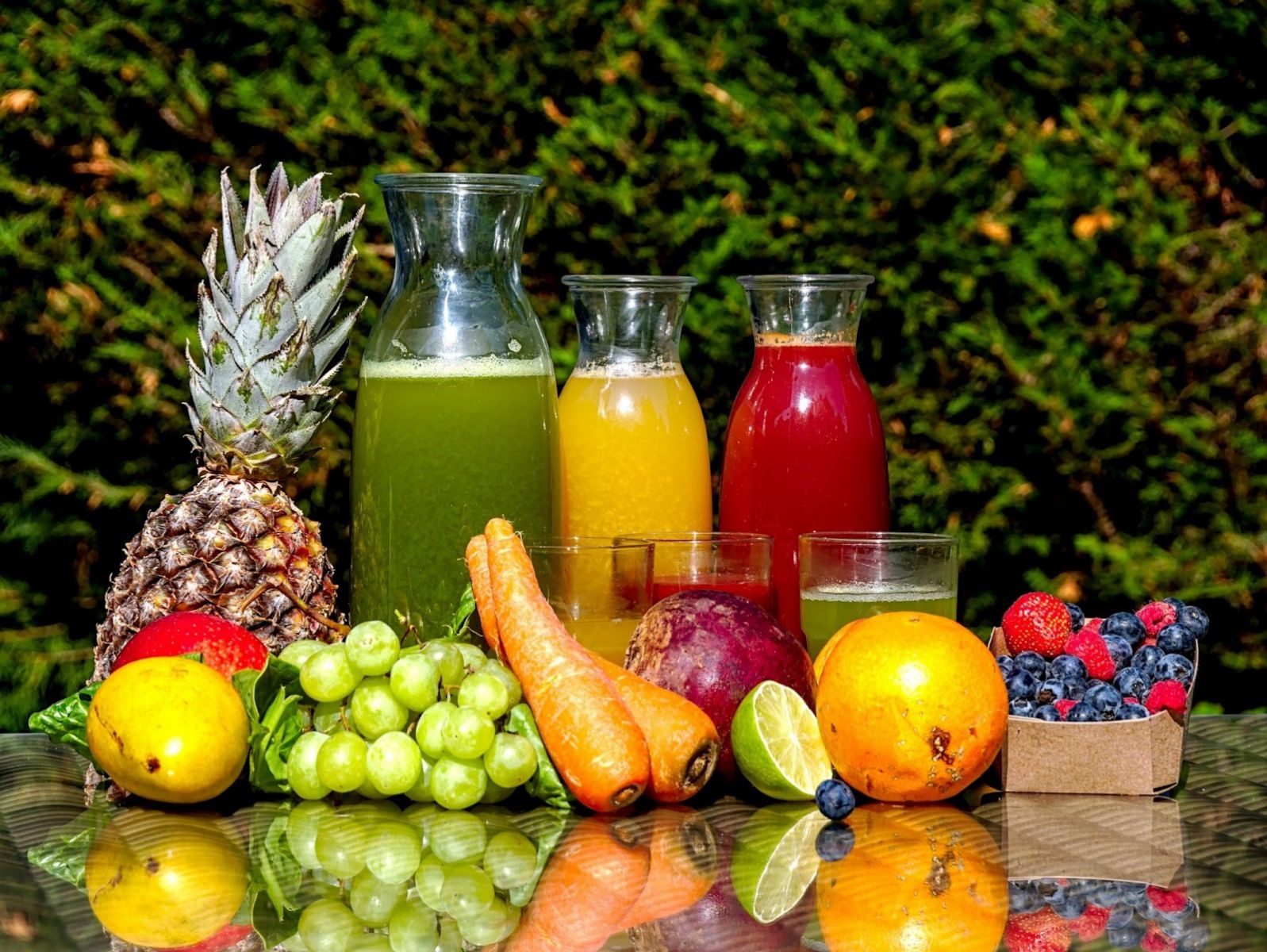
Fruits and juices. Photo by Zlatko ?uri? on Unsplash
Brain health according to the World Health Organization is "the state of brain functioning across cognitive, sensory, social-emotional, behavioural and motor domains, allowing a person to realize their full potential over the life course, irrespective of the presence or absence of disorders".
Many factors contribute to shaping your brain health over your life course. These include your:
This blog post will enlighten you specifically about the role of diet and nutrition in the promotion of your brain health. Particular focus will be placed on which African foods, when consumed in the right quantity and quality, promote your brain health.
To begin with, have you ever wondered what foods are healthy for the brain? Take a look at these foundational truths about food classes and their roles in the body.
You are likely to be conversant with the 7 classes or groups of foods. For a quick recap, they are: carbohydrates, proteins, fats and oil, mineral salts, vitamins, water, and roughages (fibre).
Now, of this list, how do you identify the ones that are healthy for your brain? For the sake of easy understanding, let us break things down into two categories as follows:
To be sure that you don't get misled, the big nutrients don't mean they perform the major functions while the small nutrients should be neglected. Actually, it's not so.
The big nutrients are big because the body needs them in larger quantities than the small nutrients, yet the small nutrients are helpful in breaking down the big nutrients so that the body can make use of them effectively. So, it's like an interdependent play out of two separate factors.
Moving on, research has this to say about macronutrients and their effects on the brain. The intake of simple carbohydrates like sugars, snacks, processed foods, and sweetened foods is associated with memory and retention decline. While consumption of complex carbohydrates like whole grain foods, legumes, maize, and wheat flour leads to successful brain aging, improved short-term and long-term memory.
Also, the consumption of saturated fatty acids like butter, margarine, fried foods, fatty meats, and palm kernel oil decreased memory and learning scores, while Omega-3- fatty acids such as DHA (Docosahexaenoic acid), EPA (Eicosapentaenoic acid), ALA (Alpha- Linolenic acid) found in foods like salmon, tuna, crabs, oysters, fish oils, vegetable oils such as canola and soy oil, flaxseed oil were associated with positive memory and learning scores.
That's not all. The intake of protein enhances the working memory when task demands are high.
This shows how the consumption of selected and healthy macronutrients are important and beneficial to the health of consumers both in the short term and long term.
Coming to the micronutrients where we have our vitamins and minerals. These are so important to all persons, from infancy to old age. B Vitamins (B1, B2, B3, B5, B6, B7, B9, B12) and Vitamin C are much needed in the brain as well as other parts of the body. When they are not available in the body in sufficient amounts, they cause memory loss, depression, learning disabilities in children, and cell death.
Minerals like Zinc, Magnesium and Iron play major roles in brain health as they help nerve transmission and provision of oxygen to the brain.
For a plus, how about water? Man is made up of water, greater than 60% of total body weight. The brain sure needs it too, else we are at risk of losing attention, coming down with headaches, depression and having impaired short-term memory.
Now, let dive deeper into the specific categories of Africa foods that are good for your brain health with specific examples.
These include:
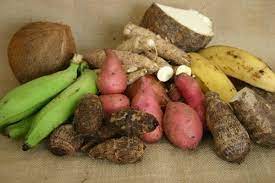
Some staple foods of Africa: Plantains, Cocoyam, Yam, Cassava, and Sweet potatoes
Staple foods are foods that make up the majority of our diet. They provide the major source of energy for our body, including our brain, Such foods include rice, maize, green bananas, cassava, plantains, sweet potatoes, cocoyam, beans, and lentils. When these foods are fortified with vitamins like Vitamin B1, B2, B3, B5, B6, B12 and minerals that are best suited with them, they are of great advantage to the brain as there is a blend of macronutrients and micronutrients.
.jpg)
Varieties of African fruts that are rich in vitamin C
Vitamin C food sources include tomatoes, potatoes, citrus fruits like oranges, tangerines, etc. Vitamin C serves as a cofactor that helps in the formation of adrenaline, the flight or fight neurotransmitter in the body. When it is insufficient in the body, it results in depression, and mood changes.
Vitamin C is an antioxidant that helps to neutralize free radicals released as a result of stress. The neutralization of free radicals by antioxidants like foods high in Vitamin C prevents diseases from arising in your body.
.jpg)
Blueberries. Photo by Yulia Khlebnikovia on Unsplash
Morocco and South Africa are known exporters of blueberries in Africa. Places like Nigeria import blueberries, but that doesn't stop you from getting this 'super fruit' and including it in your diet for a healthier brain and enhanced brain performance.
Blueberries contain anthocyanins that are effective in reducing age-related diseases, and increasing long term memory in children. They also have antioxidant effects that minimizes the oxidative stress associated with aging.
As the blueberries ripen, the anthocyanins increase, and this gives the berries its dark blue color. Amidst the other benefits of this 'king of the world fruit', they are brain cell protective.
Blueberries can also be purchased in powdered form, and be mixed into smoothies. This form helps increase the storage life of the berries. They are also found in wine, fruit juice and jam.
Be on the watch for some blueberries when next you go health shopping.
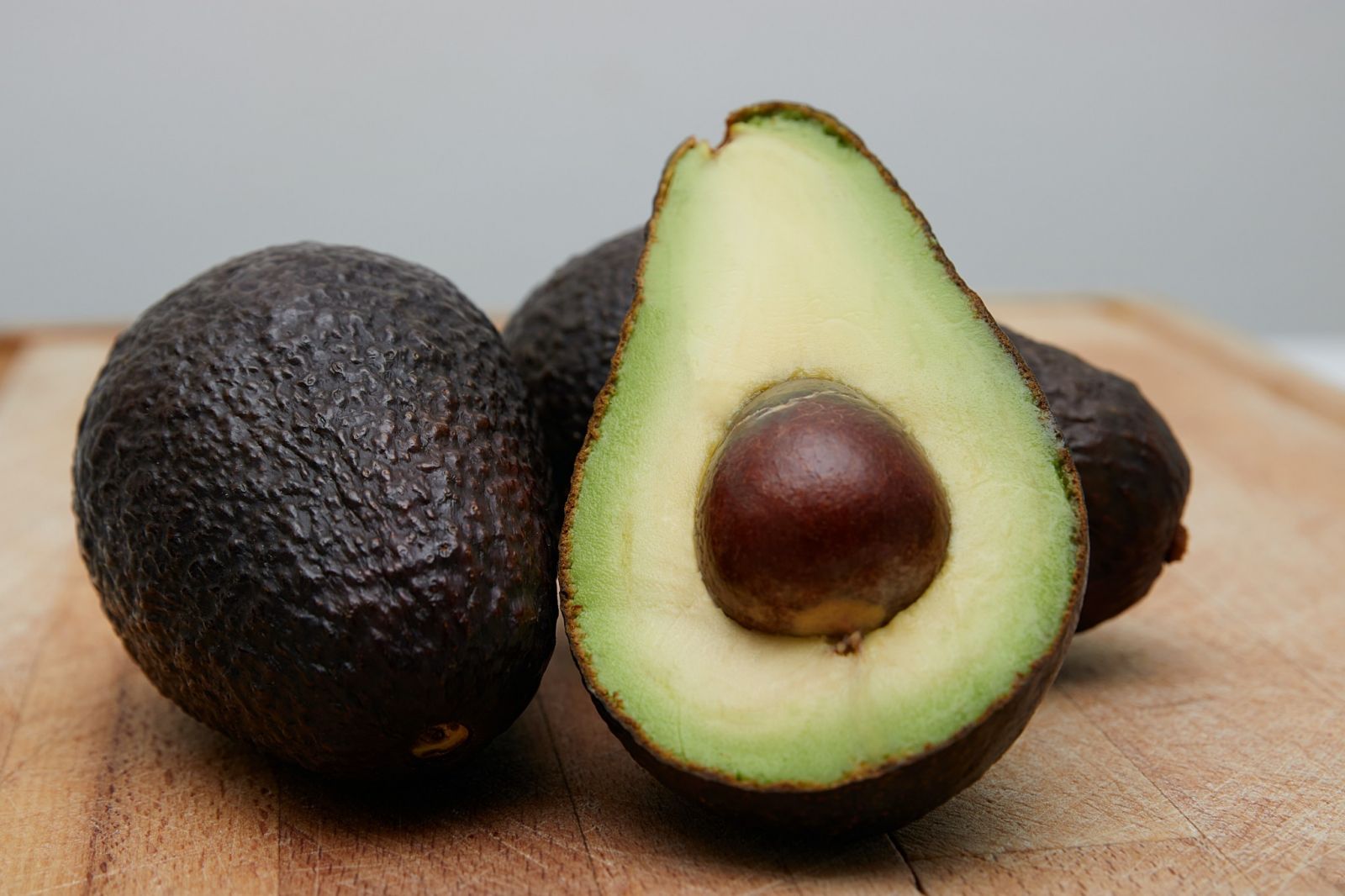
Avocados. Photo by Gil Ndjouwou on Unsplash
Talk about a fruit that is home to B vitamins, it's the Avocado! B vitamins like folate, niacin, riboflavin and pantothenic acid. In addition to these vitamins, avocado contains Vitamin C, Vitamin E and fibers which are of importance for proper functioning of the brain.
Varieties of African vegetables. Click on image to enlarge.
Africa is blessed with a wide variety of green leafy vegetables. A research study revealed that the consumption of 1-2 servings of green leafy vegetables especially Spinach (commonly called Morogo in Sesotho (South Africa) and Efo-tete in Nigeria), Kale (commonly called Borecole, Efo Igbo in Yoruba), Broccoli, Collard greens and Lettuce (known as Agblòke in Ghana, Efo yanri in Yoruba, and Kissi in Sierra-leone) helped to reduce the cognitive decline associated with aging.
These green leafy vegetables contain vitamins like vitamin B, C, E, K, choline and minerals like Iron, Folate, Magnesium and Zinc that are healthy for the brain. They have antioxidant and anti-inflammatory properties that are cogent in brain health.
These vegetables are rich in fiber and low in cholesterol, which contributes to your overall well-being.
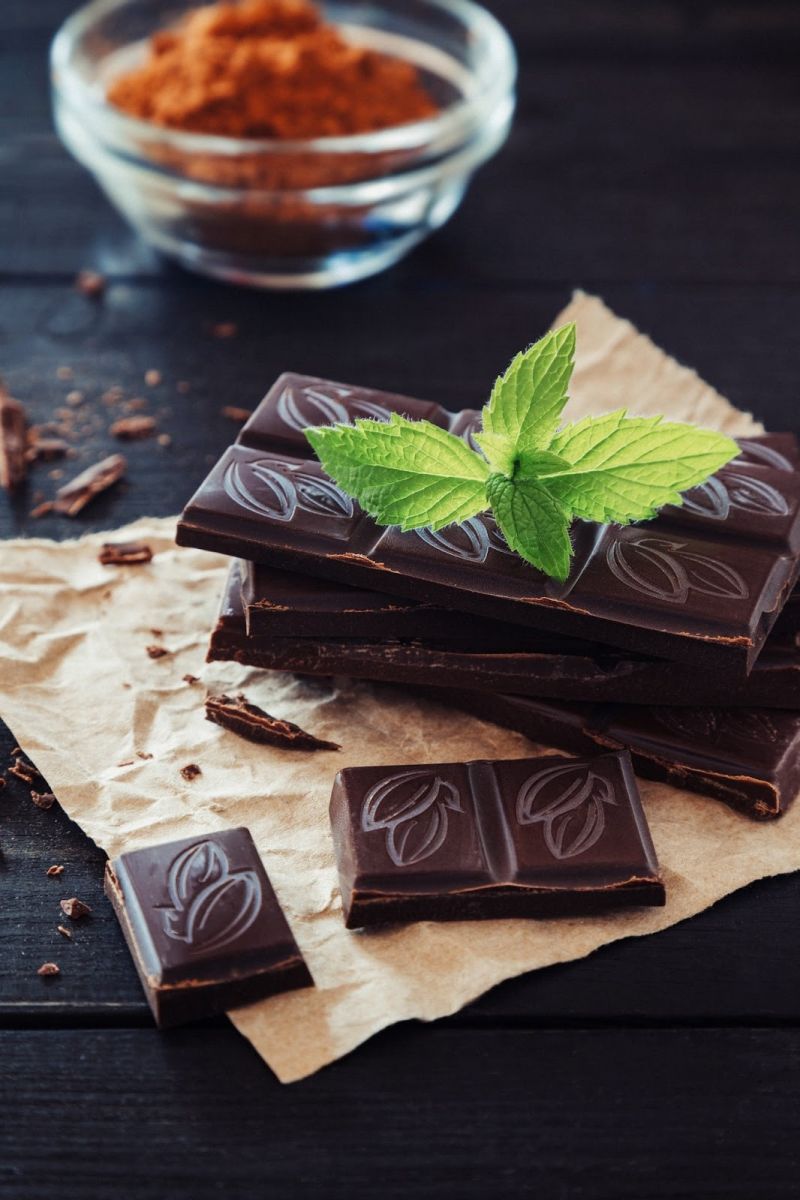
Dark Chocolate. Photo by Elena Leya on Unsplash
Dark chocolates, especially the fortified ones, are rich in flavonoids. These flavonoids help with attention, memory, and cognition. The cocoa content in dark chocolates is higher than those in milk chocolates. This makes dark chocolates the preferred beverage of choice when it comes to brain health.
Are you in any part of Africa–Nigeria, Ghana, or towards the Eastern, Northern or Southern regions of Africa? –you can grab your dark chocolates in a supermarket or minimart and fuel your brain!
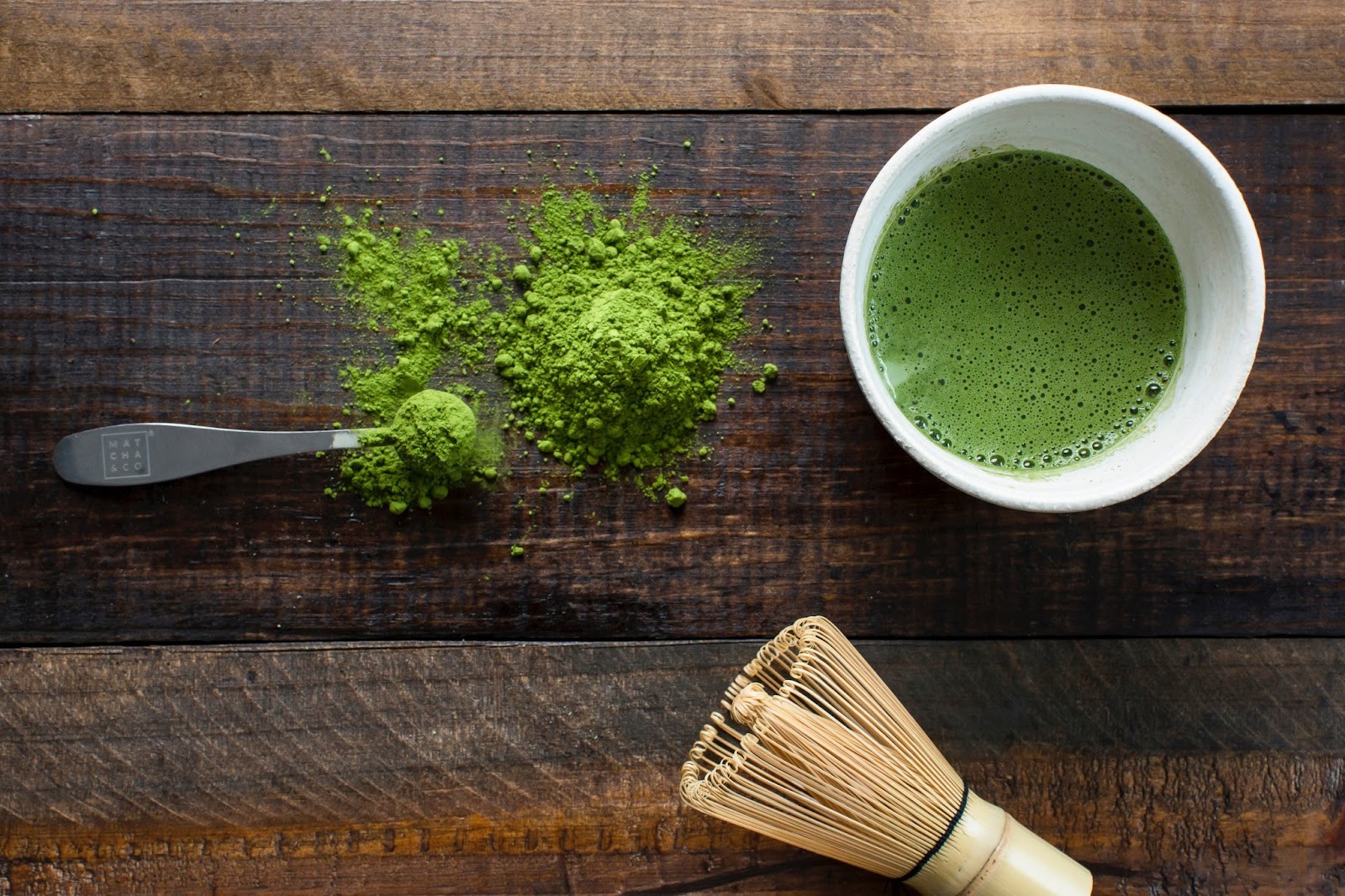
Green tea. Photo by Matcha & CO on Unsplash
Green tea contains theanine, an amino acid that protects against anxiety, panic, and depression. These disorders arise in the mind. Inclusion of green tea in the daily diet offers protection against them.
Green tea also aids your memory, brain function and retention ability. It changes the process of brain aging and can serve as a brain protective agent.
It is produced in the East and Central part of Africa such as in Kenya, Uganda, Morocco, Tanzania, and North East Nigeria.
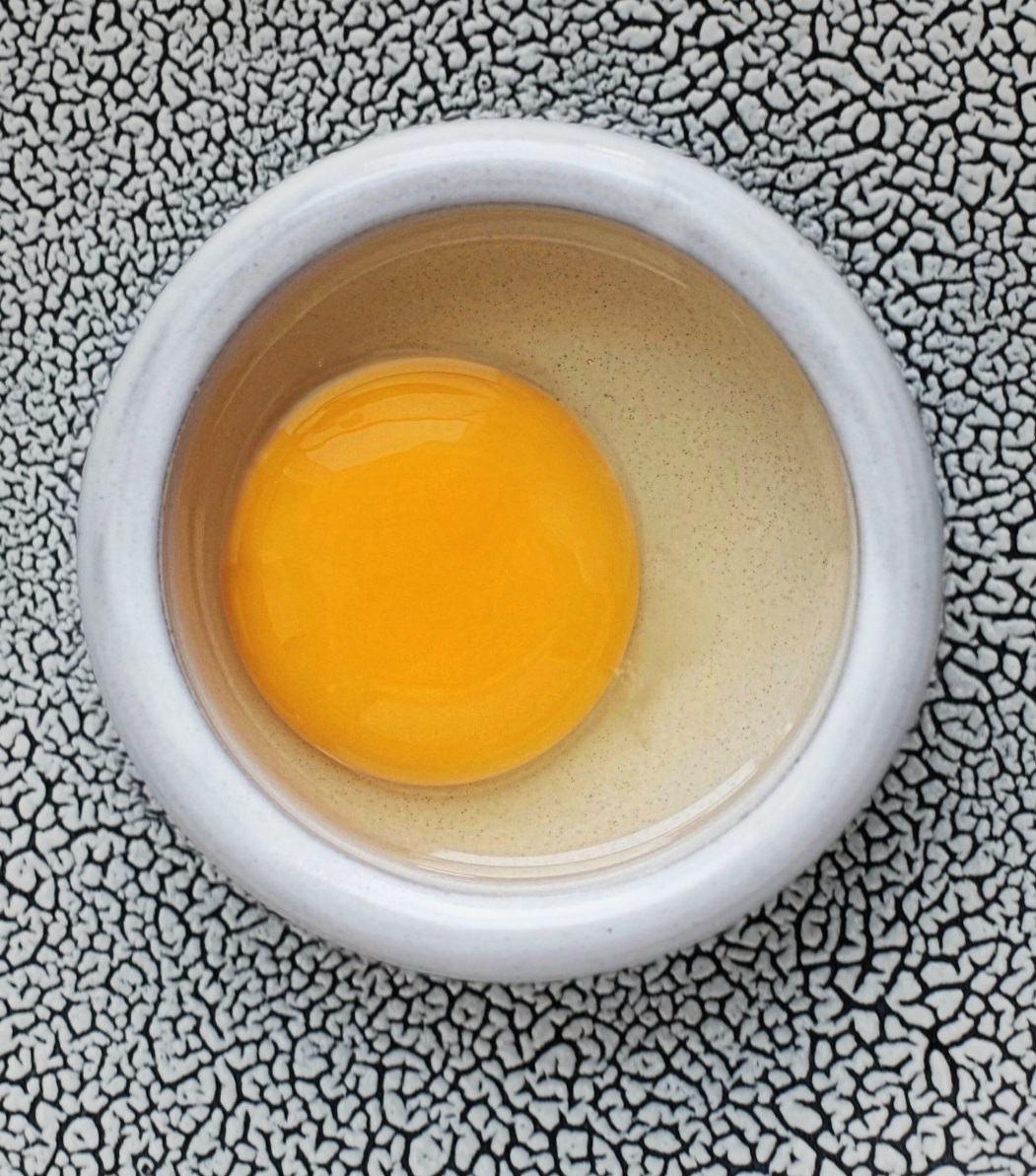
Egg yolk. Photo by Karina Zhukovskaya
Egg yolk is a good dource of protein. It also contains choline that serves as a precursor of acetylcholine, a renowned brain messenger. Research shows that the consumption of 300 mg/ day egg yolk elevated the plasma free choline levels and it enhanced verbal memory.

Apart from egg yolk, dairy and bean products that are good sources of protein for the body, oily fish like the African knifefish (Eja osan in Yoruba, Azu-Asa in Ibo, and Dansarki in Hausa), salmon, mackrel and tuna are known to be good sources of Omega-3-fatty acids that are vital for brain development and function.
Eating two servings of fatty fish per week will provide a healthy adult with the equivalent of the recommended daily dose of 250–500 milligrams (mg) of Omega-3-fatty acids.
A constant experience of brain fog and some other brain-related problems can become a thing of the past if you pay closer and consistent attention to your diet.
The awareness that your diet can influence your brain health and that of your child should influence you to consume the above mentioned African foods in reasonable portions daily. Most are readily available in the market and affordable.
From the regular consumption of fortified staple foods to egg yolks, you can be sharper, smarter and more up to your daily tasks!
African foods that are rich in vitamins
Top 10 heart healthy African foods
Click on the image below to watch a video and learn more about brain health in general.
WHO video on Brain health. Click on image to watch.
Published: October 19, 2023
© 2023. Datelinehealth Africa Inc. All rights reserved.
Permission is given to copy, use and share content without alteration or modification and subject to attribution as to source.
DATELINEHEALTH AFRICA INC., is a digital publisher for informational and educational purposes and does not offer personal medical care and advice. If you have a medical problem needing routine or emergency attention, call your doctor or local emergency services immediately, or visit the nearest emergency room or the nearest hospital. You should consult your professional healthcare provider before starting any nutrition, diet, exercise, fitness, medical or wellness program mentioned or referenced in the DatelinehealthAfrica website. Click here for more disclaimer notice.